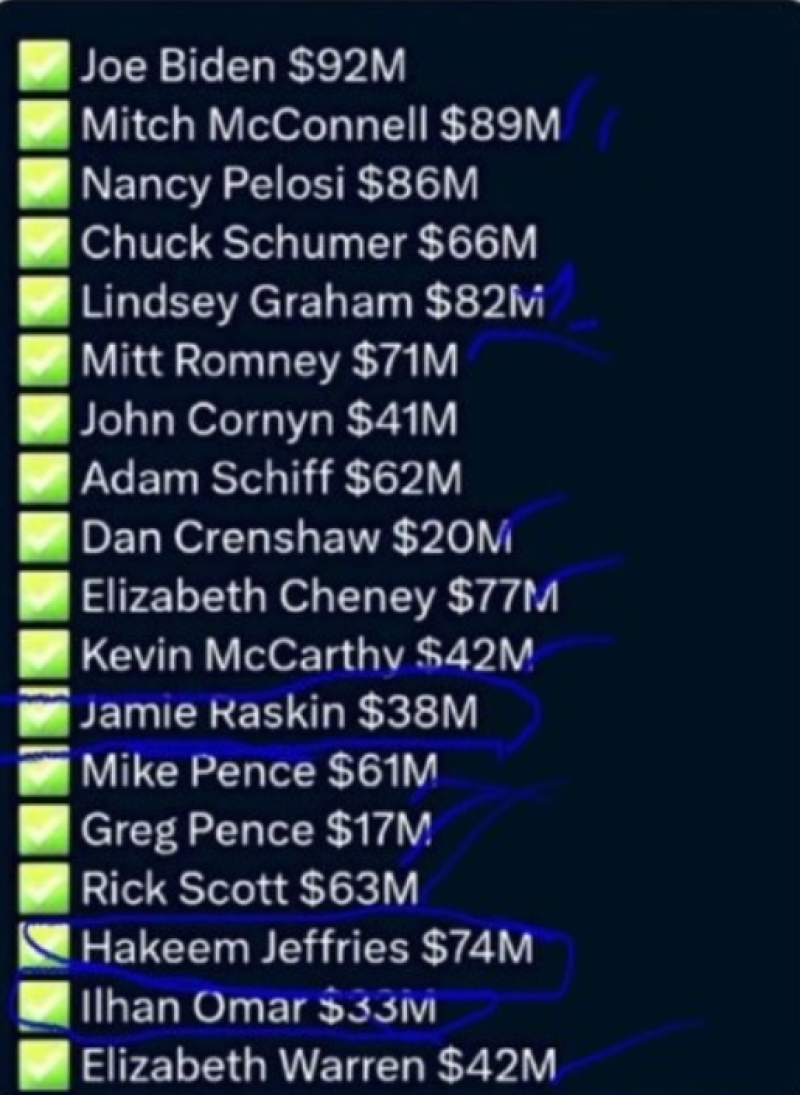A viral tweet exposes the massive wealth of U.S. politicians, drawing a sharp contrast to the average American worker’s $64K income.
The Political Rich List: Eye-Popping Wealth Numbers
A tweet by MAGAMARIN has reignited public scrutiny over the vast wealth accumulated by U.S. political figures. The tweet features a graphic comparing the net worths of high-profile lawmakers, with many sitting well above the $60 million mark. President Joe Biden tops the list at a staggering $92 million, followed closely by Senate Minority Leader Mitch McConnell with $89 million, and former House Speaker Nancy Pelosi at $86 million.

The data suggests an elite club of lawmakers with multimillion-dollar portfolios:
- Chuck Schumer: $66M
- Lindsey Graham: $82M
- Mitt Romney: $71M
- Hakeem Jeffries: $74M
- Elizabeth Cheney: $77M
- Rick Scott: $63M
The American Worker: $64K Before Taxes
The tweet caption cuts deep: “And then you have the American worker with a combined average family income of $64,000 before taxes.” The post has gone viral, sparking debate about economic inequality and how wealth intersects with political power. When the average citizen earns less than 0.1% of some lawmakers’ fortunes annually, it raises questions about representation and financial transparency.
Even among politicians with relatively “modest” wealth by comparison—like Greg Pence at $17M or Dan Crenshaw at $20M—the figures dwarf those of everyday Americans.
No Tradable Asset—But Political Capital Is Priceless
While this wealth list doesn’t involve a direct tradable asset like Bitcoin (BTC) or a tech stock, the political implications are massive. Influence, policy direction, and even legislative priorities may be shaped by these financial backgrounds. In a market-driven economy, political capital can be just as powerful—and profitable—as financial capital.
The contrast between everyday workers and the political elite isn't just a matter of income—it's a reflection of systemic wealth imbalance that resonates across markets and voter bases.
 Peter Smith
Peter Smith

 Peter Smith
Peter Smith


